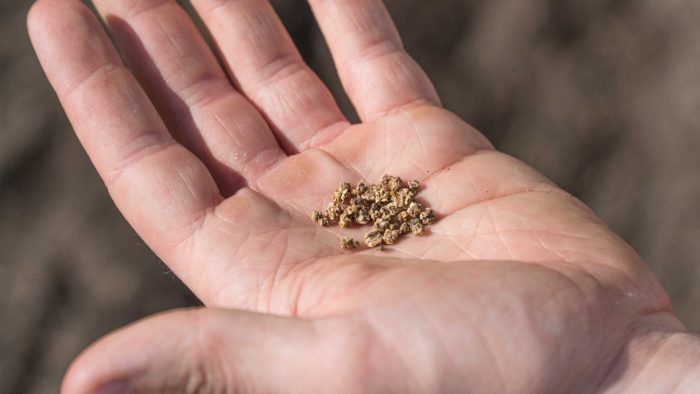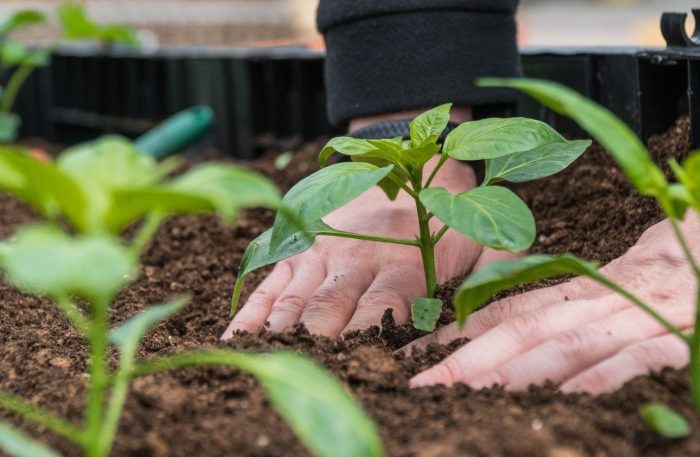The height of spring brings with it the preparations for summer in the vegetable garden. Gardeners begin sowing and planting outdoors with a little more confidence in the warmer weather. Although, caution is still necessary as spontaneous bursts of frosty days appear as the residue of the weeks passed by from late winter and early spring. Still, there’s a heap of tasks to do to keep you busy in the garden. Set yourself up for a successful growing season with our Gardening Tips for May…
Sowing Seeds in May
Sowing is the easiest task when it comes to gardening. Yet, growers at times still struggle to get their seeds to germinate. Particularly when it comes to directly sowing outdoors in May. To germinate successfully, seeds require an appropriate amount of moisture, warmth and light. The correct amount of these things will vary from seed to seed. Therefore, it’s not advisable to take a one size fits all approach. Too much or too little of any of those three factors might cause some seeds to germinate wonderfully, while others remain dormant.
However, equipped with the knowledge of the ideal germination conditions for specific seeds, the following tips can almost guarantee seed sowing success:
-
Keep Seeds Fresh
Fresh seeds have a greater chance of germinating. However, that’s not to say growers should be buying a fresh pack of seeds every year. When sealed and kept in a cool dry place, seeds can be preserved. Staying fresh and ready for sowing whether successively or the following year.

-
Soil Preparation
We can’t stress enough how important soil preparation is when it comes to sowing directly outdoors. Remove clumps of soil, weeds, stones and other obstructions in the ground. Add fertiliser or organic matter to create a nutrient-rich growing environment. Loosen the soil with a rake or hand fork to improve drainage. This prevents will help prevent germination failure form soil that is too wet from rain or watering.

Seeds to Sow in May
Directly Outdoors |
Outdoors Undercover |
| Beetroot | Sweet Corn |
| Radishes | Runner Beans |
| Squash | Cucumbers |
| Peas | French Beans |
| Carrots | Corn Salad |
| Lettuce | |
| Kale | |
| Spinach | |
| Swiss Chard | |
| Turnips |
Maximise Growing Space
Everyone isn’t lucky enough to have a great big plot. Or at the very least, everyone isn’t lucky enough to be able to manage one. Whether you’re tight on space or haven’t quite got the grasp on how to manage a large space, intercropping or container gardening are good growing methods to try out this month.
Intercropping
Intercropping is a growing method that allows two different crops with different growth to harvesting rates (one faster, one slower) to grow in the same row or garden bed. This should have the effect of freeing up growing space when faster crops come to harvest, despite being sown at the same time. Furthermore, this method can be combined with a companion planting technique, which works to enhance the growth and development of complementary crops. Whilst also increasing resistance to certain pests and plant diseases.

Container Gardening
Container gardening is another great way to improve your use of space in the garden at home or on the allotment. Maximising your growing space isn’t the only benefit. Container gardening allows flexibility in moving your crops around the garden, cutting down the need for weeding or many other tedious gardening jobs. In fact, lots of gardeners are growing carrots in containers despite carrots being a distinctly ground grown crop.

Top Gardening Tips for May
-
Hardening Off
It’s prime time to harden off your plants as the weather on average is warmer than previous weeks. Introduce young plants to outdoor conditions gradually, to prevent shock or damage caused by sudden environmental change.
-
Watering
Now is the time to get serious about your watering routine for your outdoor plants. Early morning and evenings are ideal watering times. Especially to prevent fungal plant diseases caused by extended periods of damp leaves and moisture.
-
Weeding
As your plants flourish and grow, so will the weeds that surround them. Make sure you weed your vegetable patches often to keep on top of unwanted plants that might interrupt with your crops.

 Call us on 01246 240880
Call us on 01246 240880 Free 48hr Delivery
Free 48hr Delivery Sign-up and receive 10% off
Sign-up and receive 10% off